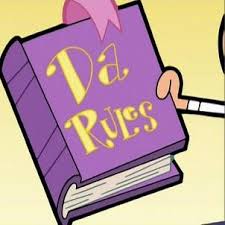 Writing a book is something many people want to do. Some people actually start doing it and a few complete it. I am one of those few and, the biggest lesson I learned when I finished my first book was…
Writing a book is something many people want to do. Some people actually start doing it and a few complete it. I am one of those few and, the biggest lesson I learned when I finished my first book was…
Wait for it…
…that I could actually write a book.
Please note, I didn’t say, “Write a good book.” Just that I could do it.
Since that first book, I have written seven or eight novels (four of which have been published) and a dozen or more short stories (several of which have been published, too).
I have come up with a concise list of rules that, when followed, will allow you to finish a novel (again, note I didn’t say, “Write a good novel”). Along the way to those rules, I have learned a few more lessons about writing (and finishing) novels. Let me begin with the five lessons before I give you the six rules.
Lesson 1
Writing a novel isn’t about being the best writer in the world. It also is not about having the best story idea. It is about sitting down and writing and not stopping. Not even when you are sick to death of the story and want to do ANYTHING but work on it. Persistence is the word here. To quote Galaxy Quest: “Never give up, never surrender!”
Lesson 2
Revision is not allowed. At least, not until you have a finished the first draft. That is not to say you aren’t allowed to have different/better ideas of how to tell the story. By all means make notes of how you want to see things changed in the affected areas of your novel. Just don’t spend time rewriting those areas until the first draft is complete. That can mean you change direction between one chapter and the next.
That’s okay. I’ve done it myself. The alternative is, you revise as you go and potentially NEVER finish writing. As an example, the first chapter of my first novel went through more than twenty iterations and took me over a year to write. When I finally settled on something and moved on, I discovered it wasn’t really the first chapter after all. A year wasted on something that ended up being thrown away.
Lesson 3
Writer’s Block is not an obstacle. There are times when you don’t know exactly how to frame a scene. That definitely happens. But, in the cases where you don’t know what to write and you sit twiddling your thumbs claiming to be blocked, you are wasting time. You KNOW what you want to have happen. You just don’t (yet) know how to write it.
That’s when you fall back to point form. List the who, what, where, when, why and how of the scene and move on. Chances are pretty good you do know what to write after the blocked spot. List everything you know for the scene/chapter and move on. Plenty of time to convert the bullet points into a workable scene later.
Lesson 4
You will come to a point where you hate your novel. Don’t worry. That’s natural. You’ve been writing and massaging the work for goodness knows how long and you are truly sick of it (I find I get there at around 60% complete). There are so many stories you want to tell. Why can’t this stupid one just be finished? That is when you are most vulnerable to temptation (and your novel most susceptible to being abandoned).
Gird your loins and keep at it. Do whatever it takes to keep going. Give yourself a wedgie. Promise yourself a reward. Deny yourself something your love.
Just. Keep. Going.
Whatever you do, do NOT go toward the new and shiny story. It’s okay to write the new idea down and put it aside. Just don’t spend ANY time on it.
Lesson 5
The Beginning, Middle and or Ending sucks. In fact, the entire plot seems to have conceived by a rabid squirrel. You feel you must have been brain dead when you were writing. Perhaps it would be better if you threw your entire manuscript alone with the computer/tablet/phone/typewriter (yes those still exist)/word processor into a wood-chipper.
Fear not. There is a solution (hint: it isn’t a wood-chipper). The important thing here is, you have words on the page. Remember, what’s in your head but not written down somewhere is called a dream.
So, back to the solution. It is a single magic word: Revision.
That happens after you have finished the novel (see Lesson 2).
As Mur Lafferty has said in one way or another, “Allow yourself to suck.”
To Sum Up with 6 Easy to Remember Rules
- Never Give Up, Never Surrender.
- Never Revise while writing the first draft.
- There is no Writer’s Block; use bullets if necessary.
- Hating your work is natural. Get over it and fight through.
- Let yourself write like a rabid squirrel. Suckage is okay.
- Avoid Wood-chippers.
